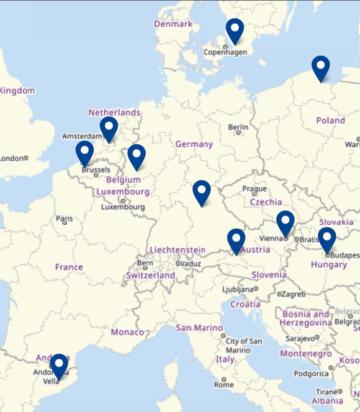Help us make the FRA website better for you!
Take part in a one-to-one session and help us improve the FRA website. It will take about 30 minutes of your time.

EU Charter of Fundamental Rights
54. cikk - A joggal való visszaélés tilalma
E Charta egyetlen rendelkezését sem lehet úgy értelmezni, hogy az bármilyen jogot biztosítana olyan tevékenység folytatására vagy olyan cselekedet végrehajtására, amely az e Chartában elismert jogok vagy szabadságok megsértésére vagy a Chartában meghatározottnál nagyobb mértékű korlátozására irányul..



